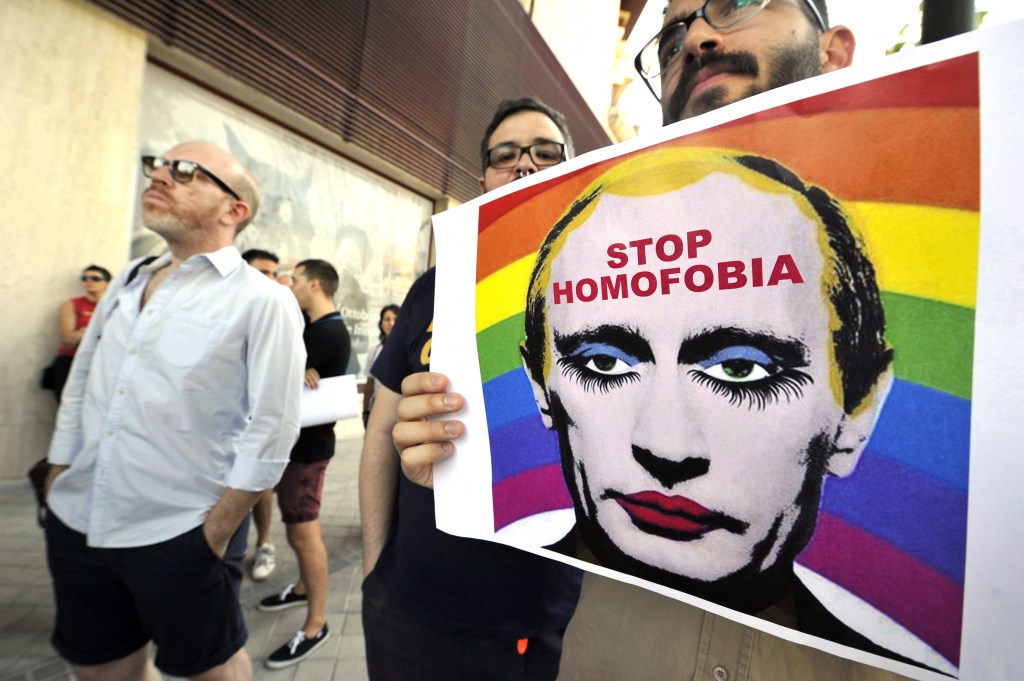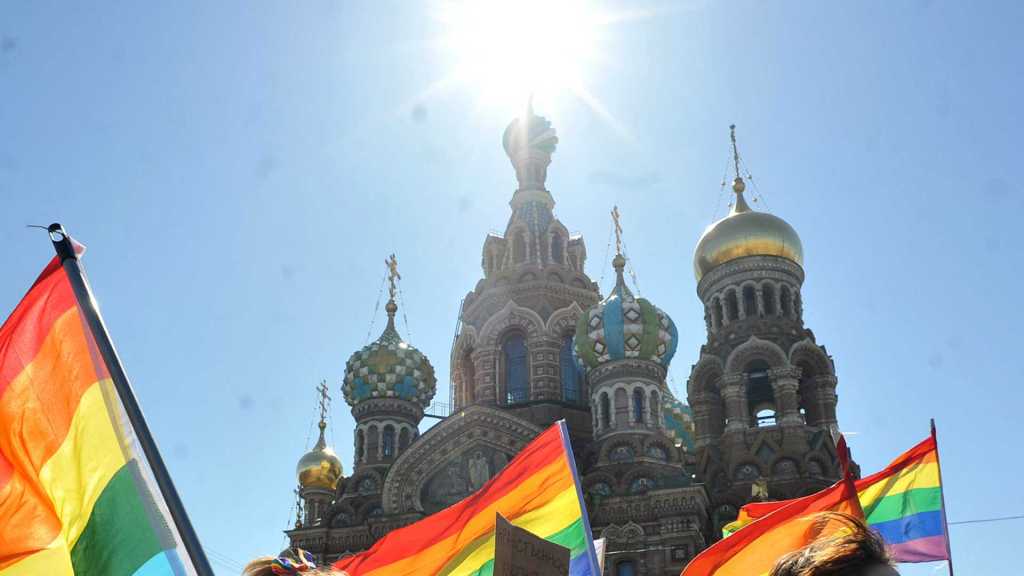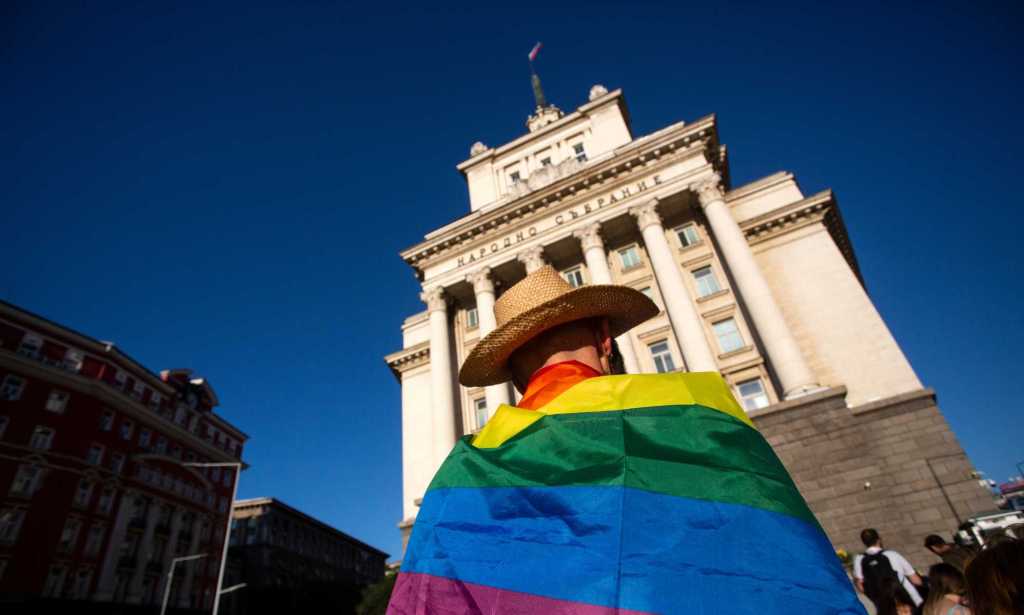Uzbekistan set to join growing list of countries with anti-LGBTQ+ ‘propaganda’ laws

Uzbekistan is the latest country to table a new anti-LGBTQ+ propaganda law. (Getty)
Uzbekistan is the latest country to table a new anti-LGBTQ+ propaganda law, joining a list of nations cracking down on queer people and their lives.
Alisher Qodirov, the leader of the ruling Milliy Tiklanish (National Revival) Party, announced on his Telegram channel that the country was drawing up legislation to prohibit LGBTQ+ content, The Times of Central Asia reported.
“The change in the centre of the disease is very good,” he wrote, re-sharing a post from US president-elect Donald Trump’s daughter Ivanka, who said her father would cut federal funding to schools which promote “inappropriate sexual content” and “transgender ideology”.
Qodirov added: “We are working on adopting a law prohibiting any kind of propaganda in this regard.”
Male homosexuality is illegal in Uzbekistan, with men facing up to three years in prison for same-sex acts, and there is no protection from discrimination under the law.
But Uzbekistan is far from the first country to table such legislation in recent years.
Russia
The most notable on the list, Russia’s anti-LGBTQ+ law was controversial when enacted in 2013 and has been strengthened since then.
The law – officially designated For the Purpose of Protecting Children from Information Advocating for a Denial of Traditional Family Values – banned any public representation of non-heteronormative behaviour and relationships, sparking a wave of anti-LGBTQ+ censorship, arrests and fines.

This was followed by a purge of gay men in republic of Chechnya in 2017, with hundreds of gay people held in secret prisons across the region where they were reportedly subjected to inhumane treatment.
Head of the republic Ramzan Kadyrov denied taking any action because “LGBTQ+ people do not exist in Chechnya”. Accounts of people who fled the region proved this, of course, to be false.
Since 2021, there has been an increase in the intensity of the crackdown. A book about children with same-sex parents was published with an 18+ marker, the Russian media watchdog investigated Duolingo for stories on its app and My Little Pony being deemed adult content.
In addition, a print shop reportedly refused to print BTS greeting cards and banners for a K-pop-themed cafe after insisting they were “gay propaganda”, and a gay student was expelled after posting makeup tutorials online.

MP Vitaly Milonov called for gay people to be “sterilised” and kept in shelters like cats, having labelled actor and author Stephen Fry “sick” in 2012.
When asked whether he was fighting a war against homosexuals, Milonov replied: “It is a shame and it is a sin but it is a personal choice. It is not normal but a person cannot be punished in Russia for being homosexual, or to live with a dog, with a horse, with a sheep, whatever.”
Pushed on whether he was likening being gay to bestiality, he continued: “Homosexuality is one of the sins for us and it means we should not teach our kids that sin is OK,” The Independent reported.
LGBTQ+ venues have also been raided and shut down, with staff and punters arrested by armed police.
Hungary
In 2021, Hungary passed a law banning discussion of LGBTQ+ people in schools.
The country’s National Assembly passed the legislation, an amendment to an anti-paedophilia law, in a 157-1 vote. The law makes it illegal to depict or discuss different gender identities and sexual orientations in schools, and bans any LGBT+ content in advertising or media which could be seen by minors.
Bulgaria
In August, the president of Bulgaria signed into law the country’s ban on so-called LGBTQ+ propaganda.
Rumen Radev, who has been in office since 2017, authorised amendments to the country’s 2020 Pre-school and School Education Act which were proposed by the pro-Russian Vazrazhdane (Revival) Party and passed by parliament by 159 votes to 22.

The amendments outlaw the “propaganda, promotion or incitement in any way, directly or indirectly, in the education system” and define “non-traditional sexual orientation” as “different from the generally accepted and established notions in the Bulgarian legal tradition of emotional, romantic, sexual or sensual attraction between persons of opposite sexes”.
Protests took place outside the government building in the capital, Sofia, where people chanted “Bulgaria is no Russia” and “silence means death.”
Georgia
Georgia’s controversial sweeping bar on queer content was passed in September, giving the authorities the right to ban Pride events and flags.
The law, approved by 84 votes to zero, outlaws gender-affirming care, LGBTQ+ people’s right to adopt and nullifies same-sex marriages performed on Georgian territory. The bill was signed into law in October by the speaker of parliament, Shalva Papuashvili, after president Salome Zourabichvili staunchly refused to do so.
Papuashvili said the law did “not reflect current, temporary, changing ideas and ideologies, but is based on common sense, historical experience and centuries-old Christian, Georgian and European values”.
Share your thoughts! Let us know in the comments below, and remember to keep the conversation respectful.
How did this story make you feel?
